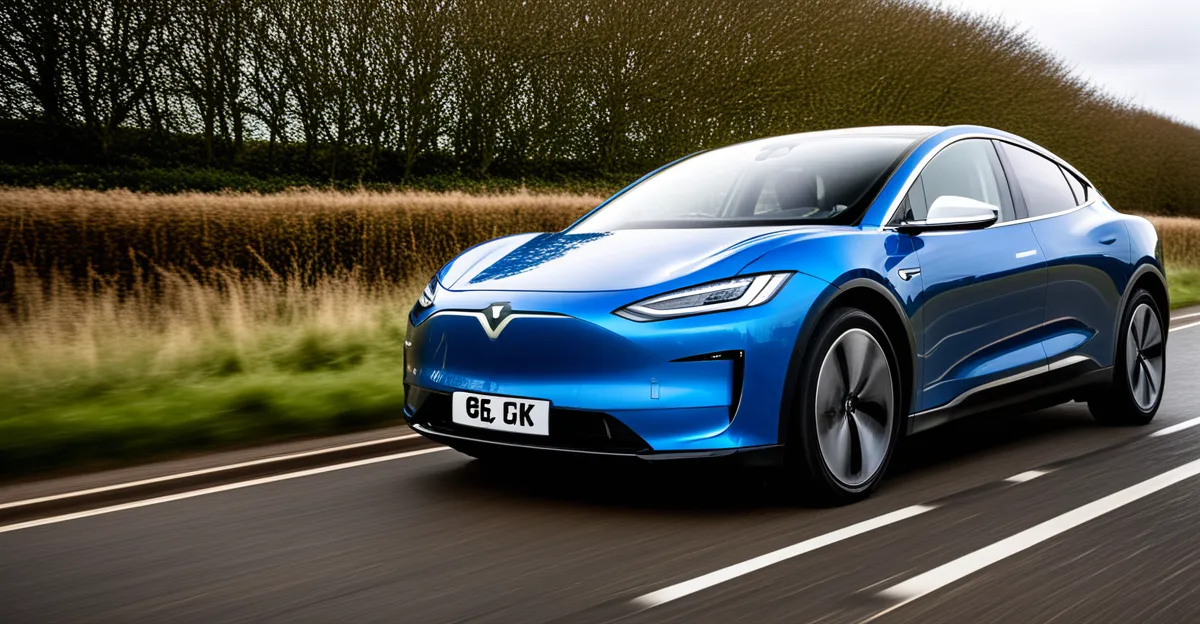Electric cars and the evolution of UK transportation
Electric cars UK future is reshaping how people move daily, marking a significant shift in UK transport transformation. The immediate impacts of electric vehicles on commuting have been profound, with many drivers experiencing quieter, smoother rides and lower running costs. This shift not only benefits individual users but also reduces urban air pollution, contributing significantly to environmental goals.
Key technological advances accelerating electric car adoption include improvements in battery life and charging speed. Enhanced lithium-ion batteries now allow longer distances between charges, while smart charging systems enable better energy management. Additionally, integration with renewable energy sources furthers the environmental benefits and supports the UK’s commitment to sustainable transport.
Also to read : What influence does consumer behavior have on the UK automotive market?
Milestones in the UK electric vehicle rollout highlight the rapid pace of change. Starting from pilot programs and initial subsidies, the timeline features an expanding network of charging points and growing vehicle registrations, signaling increasing public acceptance. Together, these trends demonstrate how electric vehicles impact the UK transport landscape, promising a cleaner, more efficient future.
UK charging infrastructure and network expansion
The backbone supporting electric vehicle growth
In the same genre : What influence does consumer behavior have on the UK automotive market?
Establishing a widespread electric vehicle infrastructure is pivotal for accelerating the electric cars UK future. The UK has embarked on ambitious expansion plans for UK EV charging stations, aiming to scale up both public and private access points. Growth targets include increasing urban fast-charging hubs and rural slow chargers to bridge connectivity gaps, addressing critical regional disparities in charging availability.
Urban centers benefit from denser networks featuring rapid chargers, while innovative solutions like mobile charging units and home-based smart chargers are emerging to assist rural users. This tailored approach helps overcome typical charging network UK challenges, such as “range anxiety” and uneven distribution.
Charging technology has evolved significantly; new systems allow faster turnaround times and integrated payment options, enhancing convenience. Developments like wireless and ultra-fast chargers promise to reshape user experiences, reducing wait times and seamlessly integrating into daily routines.
The expansion and modernization of the electric vehicle infrastructure directly influence consumer confidence and adoption rates, making the charging network a cornerstone of the UK’s transport transformation toward sustainable mobility.
Electric cars and the evolution of UK transportation
Emerging trends reshaping daily travel
Electric cars UK future is actively transforming how people commute across the country. The electric vehicles impact on daily commuting patterns is tangible: drivers report quieter journeys, reduced fuel expenses, and fewer maintenance needs. These benefits encourage broader acceptance, pushing a shift away from conventional petrol and diesel vehicles.
Key technological advances are central to accelerating electric car adoption. Improvements in battery technology now extend driving ranges significantly, easing “range anxiety.” Faster charging options complement this, enabling users to recharge on the go more conveniently. Additionally, vehicle software updates optimize energy efficiency and driving performance, contributing directly to user satisfaction.
Milestones in the UK’s electric vehicle rollout map a clear trajectory. Early government incentives and pilot schemes laid the groundwork, followed by rapid expansion of charging networks and the introduction of diverse EV models. Public acceptance has surged, supported by continuous innovations that enhance usability and affordability. By aligning with these developments, the UK transport transformation moves confidently toward a more sustainable, efficient future where electric cars play a central role.
Electric cars and the evolution of UK transportation
Electric cars UK future is transforming daily commuting by offering quieter, more efficient travel with lower ongoing costs. The electric vehicles impact is evident: fewer maintenance needs and reduced fuel expenses are enticing more users to switch. How exactly do these vehicles influence daily patterns? Drivers experience smoother acceleration and regenerative braking, making urban travel less stressful and more energy-efficient.
Technological advances dramatically boost adoption rates. Key improvements in battery capacity extend driving ranges, addressing “range anxiety.” Meanwhile, rapid charging technology supports longer trips with minimal downtime. Software updates refine energy management and enhance performance, making electric cars more reliable and user-friendly.
What milestones mark this evolution? Early government subsidies laid the foundation, followed by expanding charging networks and a surge in diverse electric models. The combination of innovation and infrastructure development propels the UK transport transformation forward. Increasing public acceptance signals a shift away from fossil fuels, embedding electric cars as central players in the country’s sustainable transport future.
Electric cars and the evolution of UK transportation
Emerging trends reshaping daily travel
The immediate electric vehicles impact on UK daily commuting is profound. Drivers benefit from quieter journeys, smoother acceleration, and reduced fuel costs, enhancing comfort and affordability. How do these impacts manifest? Quieter engines lower noise pollution in urban areas, while regenerative braking recovers energy, improving efficiency on stop-and-go routes.
Key technological advances accelerate the electric cars UK future. Battery improvements extend driving ranges significantly, easing “range anxiety” concerns. Rapid charging technologies minimize downtime, making longer trips more feasible. Furthermore, vehicle software updates optimize energy use and enhance safety systems, reinforcing reliability.
What milestones chart the UK transport transformation? Early government subsidies jump-started adoption; subsequently, national charging networks expanded rapidly. The introduction of diverse electric models tailored to different user needs broadened market appeal. These milestones collectively underpin the growing public acceptance and integration of electric vehicles into Britain’s transport ecosystem, marking a decisive shift away from petrol and diesel reliance.
Electric cars and the evolution of UK transportation
Emerging trends reshaping daily travel
What are the immediate impacts of electric vehicles on daily commuting patterns? The electric vehicles impact manifests clearly in quieter rides, reduced vibration, and lower operating costs, which enhance the overall commuting experience. Drivers benefit from smoother acceleration and regenerative braking that recover energy during traffic stop-and-go situations, improving efficiency. These effects collectively shift travel habits, making electric cars increasingly practical for urban and suburban journeys.
Which technological advances accelerate the electric cars UK future? Key breakthroughs include higher-capacity lithium-ion batteries extending driving ranges and reducing “range anxiety.” Combined with rapid charging stations, these technologies enable longer trips with minimal delays. Additionally, ongoing software improvements enhance battery management and energy efficiency, optimizing performance throughout vehicle lifespan and contributing directly to user confidence.
What major milestones mark the UK electric vehicle rollout? Beginning with early government subsidies and pilot programs, the expansion of UK EV charging stations and growing model diversity have been crucial. Increasing public acceptance is reflected in sales growth and infrastructure development, underpinning the broader UK transport transformation toward sustainable mobility. These milestones affirm electric cars as vital players in Britain’s evolving transportation landscape.
Electric cars and the evolution of UK transportation
How do electric vehicles impact daily commuting patterns in the UK? The electric vehicles impact is immediately noticeable through quieter rides, smoother acceleration, and reduced fuel and maintenance costs. This enhances comfort and affordability for commuters, encouraging broader adoption of electric cars. Regenerative braking technology contributes by recapturing energy during stop-and-go traffic, extending driving range and efficiency.
What are the key technological advances accelerating the electric cars UK future? Advances in lithium-ion battery capacity have significantly extended driving ranges, effectively mitigating “range anxiety.” Coupled with an expanding network of rapid chargers, these improvements enable longer journeys with minimal downtime. Additionally, vehicle software updates optimize energy management, improve safety features, and enhance overall driving performance, increasing user confidence.
Which milestones outline the timeline of the UK’s transport transformation? The journey began with government subsidies and pilot projects that laid a foundation. Expansion of UK EV charging stations supported widespread accessibility, while the introduction of diverse electric models customized for varying needs broadened market appeal. Together, these milestones mark a decisive shift toward sustainable mobility, firmly positioning electric vehicles in the UK transportation landscape.




